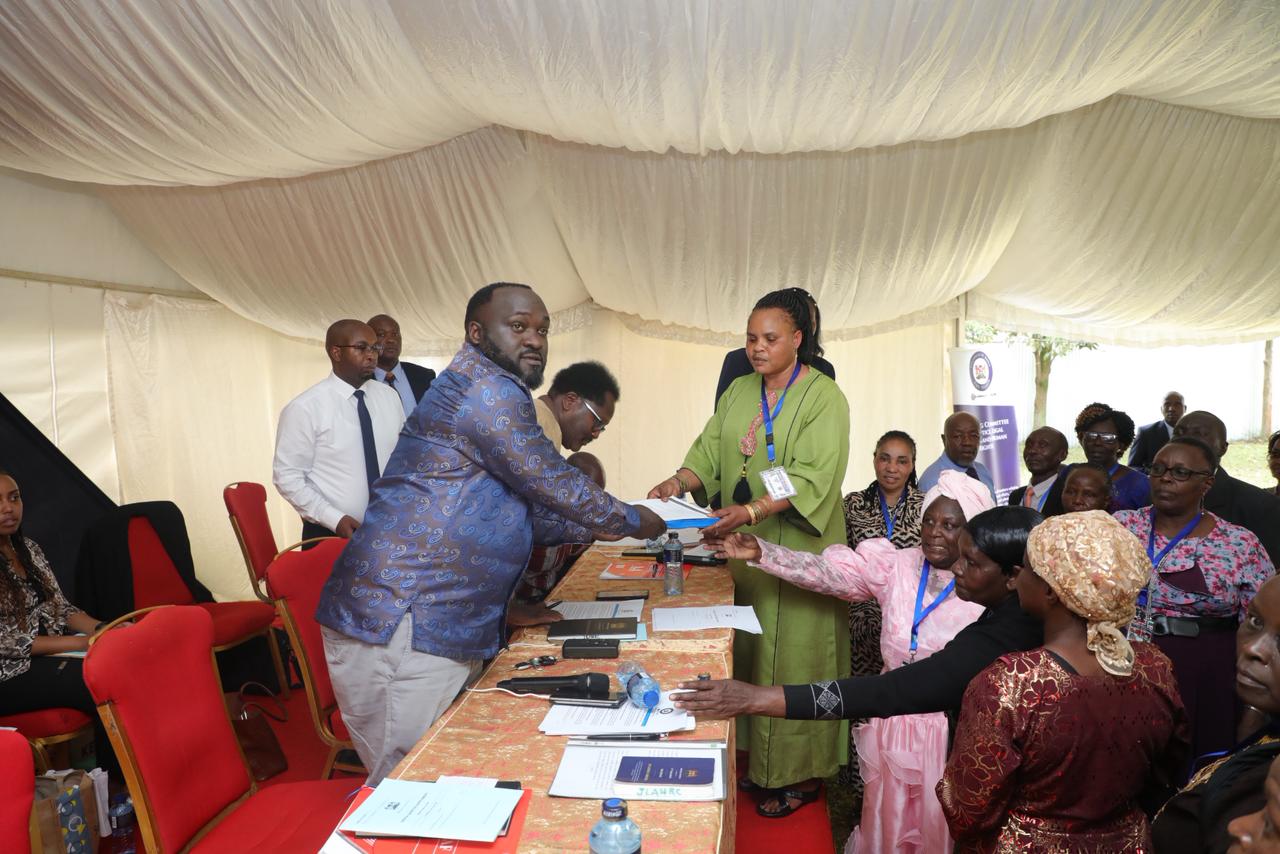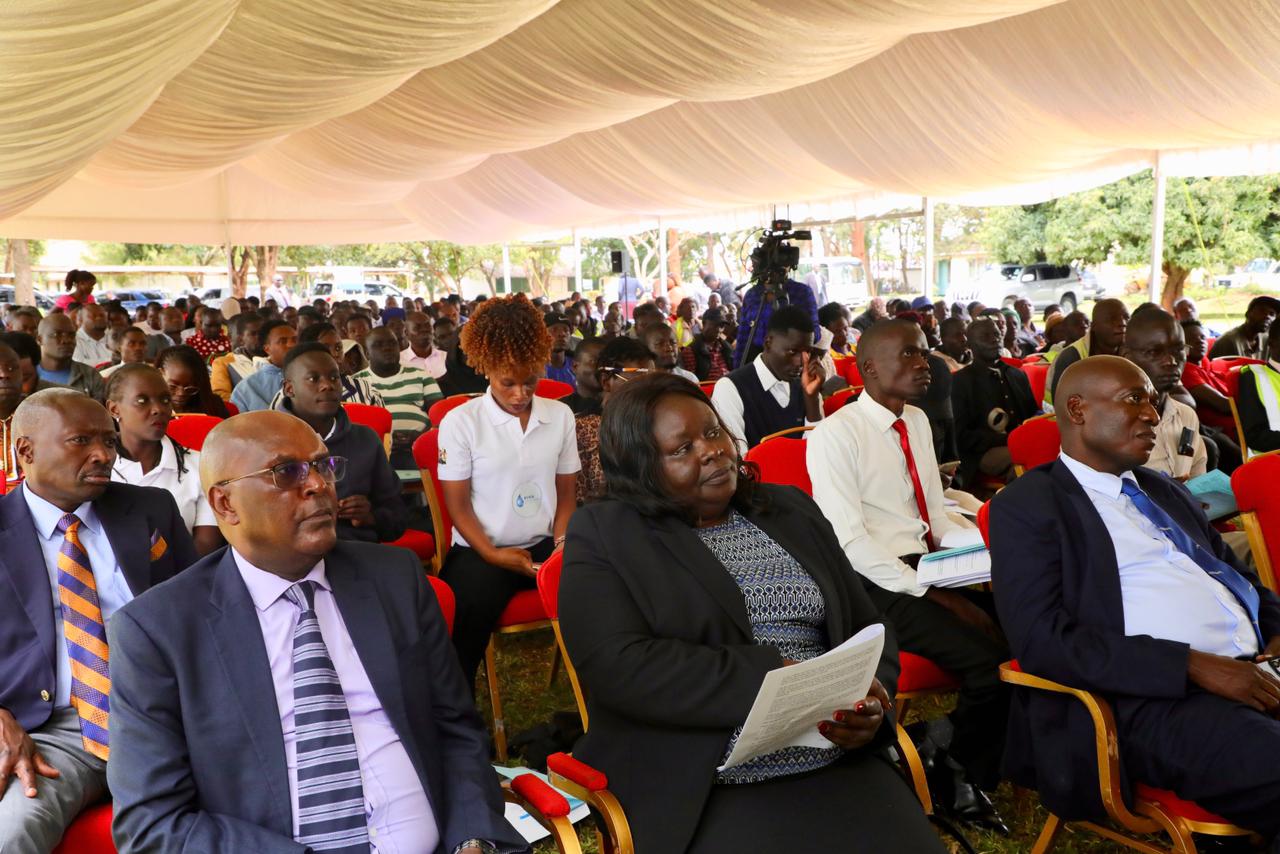

The Senate’s push to expand its legislative and oversight powers has kicked off on a strong note, with members of the public throwing their weight behind the proposed constitutional changes.
The development comes as the Senate’s Justice and Legal Affairs Committee on Monday began conducting public participation sessions on the Constitution of Kenya (Amendment) Bill, 2025, in Busia County.
Residents expressed support for proposals to allow the Senate to take part in the vetting of State officers and in the national budget-making process.
They also praised the creation of the County Assembly Fund, saying financial autonomy would strengthen MCAs’ ability to oversee county executives.
Godfrey Odongo from Nambale said vetting of State officers should be done by joint committees of both Houses, adding that the Senate should be recognised as the Upper House.
Edgar Ouma from Samia echoed his sentiments, saying he supports allowing the Senate to originate bills and expanding senators’ roles/
“We support both Houses being involved in money bills and the vetting of State officers to prevent monopoly by the National Assembly and reduce corruption,” Caxson Obatsa, a university student, said.
Emmanuel Apalat also supported the inclusion of the Senate in vetting State officers, noting it would help minimise manipulation of the process.
The Busia forum marked the first public participation session on the Bill, co-sponsored by Senate Majority Leader Aaron Cheruiyot and Minority Leader Stewart Madzayo.
The Bill was first read on August 7, 2025, before being referred to JLAC, and is scheduled for second reading on November 6, 2025.
If passed, the Bill would introduce sweeping constitutional changes to strengthen the Senate’s legislative and oversight roles.
However, it has also sparked debate, with some stakeholders warning that certain provisions could raise constitutional and legal concerns.

The proposed law seeks to elevate the Senate to the Upper House and give it powers to approve the national budget, vet and approve constitutional officeholders, and veto decisions made by the National Assembly.
It also proposes to allow the Senate to originate any legislation, vet State officers, and participate in their removal from office.
Currently, the Senate’s mandate is limited mainly to county matters — a restriction many view as rendering it underpowered.
The proposed changes would significantly elevate its status, drawing parallels with the U.S. Senate and redefining Kenya’s bicameral system.
Another key proposal is to expand the Senate’s role in the budget-making process, ensuring both Houses play a direct and effective role in shaping national expenditure.
Presently, vetting and approval of top State officers — such
as Cabinet Secretaries, Principal Secretaries, and Ambassadors — is the
preserve of the National Assembly, except in specific instances like the
vetting of the Inspector-General of Police and the Central Bank Governor, where
both Houses participate jointly.
The Bill further seeks to amend Article 115 of the Constitution to require that any Bill passed by Parliament be jointly submitted to the President for assent by the Speakers of both Houses.
It also proposes an amendment to Article 109 to allow any Bill — except those raising national revenue — to originate in either House.
According to the Senate, these changes would grant both Houses equal power to initiate legislation, either through individual members or committees, allowing the Senate to play a more proactive legislative role.
Allocation Bills could start in the Senate, while Appropriation Bills could originate in the National Assembly, each subject to amendment or veto by the other House.
Currently, the Constitution bars the Senate from handling money bills — legislation dealing with taxation, expenditure, or borrowing — a function reserved for the National Assembly.
“By eliminating barriers to the introduction of Bills, the proposal supports diversity and enhances the legislative mandate of both Houses,” the Senate argued.
The County Assemblies Forum (CAF), through its chairperson
Seth Kamanza, warned that expanding the Senate’s oversight to include county
revenue could encroach on the roles of county assemblies.
CAF also raised concerns that removing the Speakers’ concurrence requirement under Article 110 and expanding bicameral veto powers could increase the risk of legislative deadlocks.
“Without robust inter-chamber cooperation and political goodwill, these changes could paralyse law-making, especially during contentious budget cycles,” said Mr Kamanza.
The Law Society of Kenya (LSK), however, expressed strong support, saying the proposals would end recurring disputes between the two Houses and foster a more balanced, accountable, and functional system of governance.
LSK President Faith Odhiambo said empowering the Senate to take part in budget-making would enhance fiscal autonomy for counties and promote equitable development.
“The proposed amendments, if enacted, could resolve
long-standing jurisdictional disputes, enhance legislative efficiency, and
strengthen devolution,” she said.
However, LSK urged that the Bill define what constitutes “special interests” and cautioned against relying solely on supermajority vetoes to resolve disagreements, warning this could create legislative paralysis.
“A mandatory mediation process would offer a structured platform for negotiation and reduce the likelihood of stalemates that could paralyse government operations,” Odhiambo added.
The Commission on Revenue Allocation (CRA) opposed the proposed changes, warning that expanding the Senate’s role would lead to duplication and unnecessary bureaucracy between the two Houses.
“This Bill expands the Senate’s mandate in legislation, oversight, and appointments. In some instances, it may create duplication of roles and excessive bureaucracy,” said CRA Chief Executive Officer Roble Nuno.
















